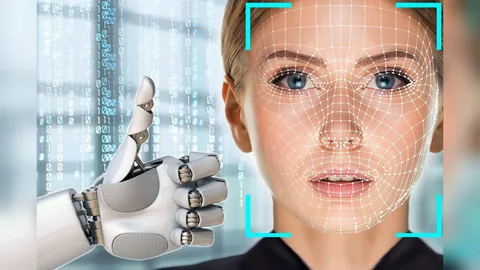Introduction: Understand the Debate over AI with Facial Recognition
The positive effects of AI in facial recognition systems have sparked a heated debate. While on one hand, it promises unprecedented accuracy and efficiency, on the other hand, it unfolds ethical dilemmas and challenges the role of a human in this vital area of perception.
Overview of AI in Facial Recognition
Will ai steal human facial recognition? Facial features, like the distance between two eyes or the shape of a jawline, can be read by advanced algorithms in an AI to identify individuals. Unlike human recognition, which solely depends on memory and instinct, AI relies on machine learning models built on huge datasets. Such systems exist within smartphones, surveillance cameras, and biometric authentication devices.
Human vs. AI Recognition Capabilities
Humans have a natural ability to recognize familiar faces even under difficult conditions. It suffers, however, with the recognition of other faces or slight changes in appearance. In contrast, AI can distinguish between individuals with tremendous accuracy, independent of lighting, angles, and aging—the question is whether it will someday completely replace human ability.
The Development of Facial Recognition Technology
Facial recognition has come a long way over the past century, shifting from a human-skill practice to a machine-based practice. Traditionally, facial recognition was performed through human memory and visual hints. The first attempts to automate this process date back to the 1960s as crude computational models. It wasn’t until the 21st century that improvements in computer vision and neural networks could work effectively toward perfect machine facial recognition.
How AI is Revolutionizing Facial Recognition
Artificial intelligence made facial recognition a powerful and highly automated tool used in multiple ways. Advances in Machine Learning and Deep Learning
AI systems are learning systems that, through the use of deep learning techniques, learn patterns and small differences that the human eye may not. Techniques such as feature extraction from a face and 3D models improve accuracy.
Accuracy and Speed: How AI Outpaces Human Recognition
AI systems can determine and process facial information in milliseconds; no human can do that. These systems are already being used in airports to make check-ins faster, in policing to track known criminals, and, increasingly, to unlock personal devices. The question, therefore, is whether man has already had his day in this particular play.
The Ethical Challenges of AI in Face Detection
The main ethical concerns with reliance on AI for facial recognition are as follows.
Privacy Concerns and Surveillance Risks
AI-driven facial recognition often intrudes on individual privacy. Surveillance cameras equipped with AI can track people’s movements in real-time, raising fears of a surveillance state. In some countries, these technologies have been used to monitor citizens without their consent.
Bias and Discrimination in AI Systems
Facial recognition algorithms may inherit biases from their training data. Research shows the systems usually underperform when coming to faces of non-Caucasian races. This gives discriminatory outcomes and sparks a call for increased transparency and fairness in AI development.
Balancing Innovation with Ethical Considerations
As AI continues to advance, striking a balance between innovation and ethics is crucial.
Frameworks for Responsible AI Usage
Governments and organizations need to lay out regulations on the moral use of AI. This involves practicing transparency in the formulation of algorithms, preventing misuse, and ensuring rights for individuals.
Transparency and Trust Through Openness
Public trust can be achieved through openness about how these technologies function or work and data utilization. Clear communication and accountability pave the way for public confidence.
Prospects for Human and AI Collaboration: A Future in Collaborative Attempts Between Humans and AI
The future of facial recognition is one of human-AI collaboration. Hybrid Systems with the Synthesis of Human and AI Competencies.
These hybrid systems could take advantage of the AI speed and precision and add the contextual intuition of humans. It will add accuracy and reliability to applications without limitations.
Long-Term Societal Impacts
AI-driven facial recognition will profoundly shape society, influencing security, privacy, and human interaction. By addressing ethical concerns, we can ensure these technologies benefit humanity while minimizing potential harm.
Conclusion: Navigating the AI-Facial Recognition Paradigm
The question of whether AI will actually “steal” recognition from humans is complex. AI offers remarkable advancements, yet it cannot exactly replicate humans’ intuition and contextual understanding. Therefore, instead of replacing humans, AI would be better viewed as a tool that complements human abilities. Careful consideration will now have to be made of the ethical and technological implications of AI in facial recognition. With humans and AI, by promoting human-AI cooperation about ethics as a priority, we can navigate this paradigm and innovate in ways that advance, not diminish our shared humanity.

